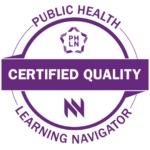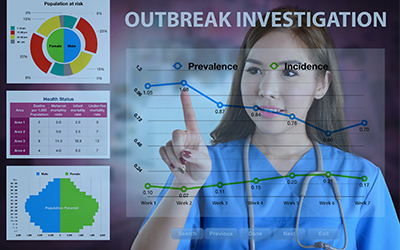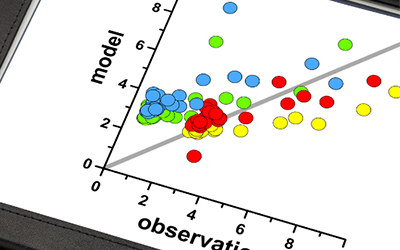
Data Visualization and Storytelling for Public Health Professionals: How to Present Your Data in Meaningful and Impactful Ways

Data Visualization and Storytelling for Public Health Professionals: How to Present Your Data in Meaningful and Impactful Ways
Year: 2024 | Competency/Strategic Skill: Communication Skills, Data Analytics and Assessment | Priority Topic: N/A | Setting: Online | Format: On-Demand | Sponsor: Emory University/Central Office
Overview:
This is a 90-minute recording of a live webinar on September 24, 2024.
Data visualization and storytelling are powerful tools that can help you make sense of your data, as well as to communicate data insights, guide decision-making and persuade others. This webinar introduces the essential principles of data visualization and data storytelling. Participants will learn to transform data into compelling narratives and persuasive arguments, tailor visualizations for a specific audience, and avoid the most common data visualization and storytelling mistakes.
Dr. Amy Patterson, PhD, MHS, is an experienced public health practitioner and educator with 20 years of experience in health communication, mixed methods research, program evaluation, and public health pedagogy. She received an MHS in International Health from the Johns Hopkins Bloomberg School of Public Health and a PhD in Behavioral Science and Health Education from Emory University. Dr. Patterson has worked with organizations such as The U.S. Centers for Disease Control and Prevention, The Carter Center, Save the Children, the DeKalb County Board of Health (Georgia), Global Dialogues, and Catholic Relief Services on projects in Atlanta, Mali, Nigeria, and Ethiopia related to HIV, childhood immunization, malaria, refugee and migrant health, maternal and reproductive health, and neglected tropical diseases.
Dr. Patterson joined the faculty of Agnes Scott College in Decatur, GA, in 2013 to take on the leadership of their undergraduate major in Public Health. During her tenure at Agnes Scott College, she has contributed significantly to developing and implementing the college’s signature initiative, SUMMIT, which integrates global learning, leadership development, digital proficiency, and preparation for professional success throughout the curriculum and co-curriculum. As part of SUMMIT, she has taught workshops on Data Storytelling with Tableau and Microsoft Excel: Beyond the Basics. She also coordinates a funded internship program for public health students and facilitates an annual series of workshops on Professional Success in Public Health for Public Health majors and minors.
Dr. Patterson volunteers regularly with the Atlanta Area Evaluation Association’s Pro Bono Evaluation program, providing evaluation support to local non-profits. She is deeply committed to public health capacity-building in all aspects of her work.
Learning Objectives: By the end of this webinar, participants will be able to:
- Identify key applications for data visualization and storytelling in public health and their relevance to your work.
- Employ the principles of effective data visualization to create images, graphics, and compelling narratives.
- Tailor your data visualizations and stories to a particular audience.
- Recognize and avoid the most common mistakes in data visualization and storytelling.
CERTIFICATE: The course contains two modules: a module to access the webinar, and an evaluation and resources module. After accessing the two modules, learners will earn a certificate of completion. When the certificate is available, learners will see a Certificate button on their dashboard.
This project is supported by the Health Resources and Services Administration (HRSA) of the U.S. Department of Health and Human Services (HHS) under grant number UB6HP31680, Public Health Training Centers for $4,348,992. This information or content and conclusions are those of the author and should not be construed as the official position or policy of, nor should any endorsements be inferred by HRSA, HHS or the U.S. Government.













































